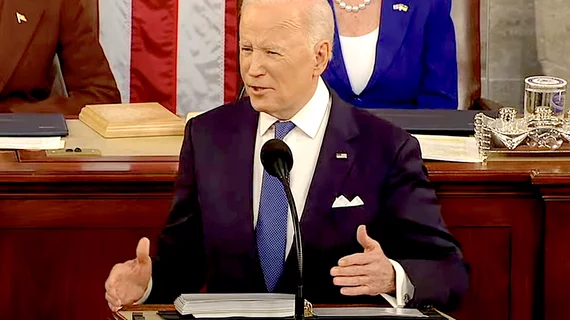President Biden declares COVID-19 pandemic is ‘over’
President Joe Biden said the COVID-19 “pandemic is over” during an interview with 60 Minutes.
The remark comes at a time when the United States is averaging 391 new daily deaths from COVID-19. Cases and hospitalizations have been trending downward in the last few weeks, according to the latest data from the Centers for Disease Control and Prevention (CDC). Overall, more than 1 million Americans have died since the onset of the pandemic.
Despite the ongoing high caseload and number of deaths, Biden declared the pandemic over.
“The pandemic is over,” Biden said during the interview, which aired Sept. 18. “We still have a problem with COVID. We’re still doing a lot of work on it. But the pandemic is over.”
Share prices of healthcare companies, including vaccine makers Moderna, Pfizer and BioNTech, dropped lower on Monday, according to Marketwatch.
Biden’s interview also set off a wave of criticism from health leaders on Twitter.
“Is the pandemic over? … Not even close,” wrote Eric Feigl-Ding, epidemiologist and health economist.
“There is a fine line between injecting a sense of optimism/hope and telling people the truth that with 400-500 deaths/day plus a very unpredictable winter ahead it’s far from over,” said Kavita Patel, MD, physician, health policy researcher and contributor for MSNBC.
Biden's comment also comes just weeks after the president contracted COVID-19.

